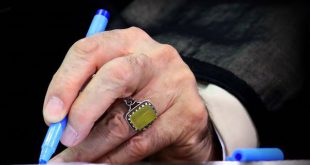This study analyses the following categories of Muslim activists: Islamic religious scholars (ulama), liberal Muslims, and the more conservative-minded individuals.
The overtly secular state of Singapore has unapologetically maintained an authoritarian approach to governance in the realm of religion. Islam is particularly managed by the state. Muslim activists thus have to meticulously navigate these realities – in addition to being a minority community – in order to maximize their influence in the political system. Significantly, Muslim activists are not a monolith: there exists a multitude of political and theological differences amongst them. This study analyses the following categories of Muslim activists: Islamic religious scholars (ulama), liberal Muslims, and the more conservative-minded individuals. Due to constricting political realities, many activists attempt to align themselves with the state, and call upon the state to be an arbiter in their disagreements with other factions. Though there are activists who challenge the state, these are by far in the minority, and are typically unable to assert their influence in a sustained manner.
This series contributes cutting-edge and cross-disciplinary academic research on various forms and levels of engagement between religion and society that have developed in the regions of South Asia, East Asia, and South East Asia, in the modern period, that is, from the early 19th century until the present. The publications in this series should ref lect studies of both religion in society and society in religion. This opens up a discursive horizon for a wide range of themes and phenomena: the politics of local, national and transnational religion; tension between private conviction and the institutional structures of religion; economical dimensions of religion as well as religious motives in business endeavours; issues of religion, law and legality; gender relations in religious thought and practice; representation of religion in popular culture, including the mediatisation of religion; the spatialisation and temporalisation of religion; religion, secularity, and secularism; colonial and post-colonial construction of religious identities; the politics of ritual; the sociological study of religion and the arts. Engaging these themes will involve explorations of the concepts of modernity and modernisation as well as analyses of how local traditions have been reshaped on the basis of both rejecting and accepting Western religious, philosophical, and political ideas
About the Author
Dr. Walid Jumblatt Abdullah is an Assistant Professor at Nanyang Technological University in Singapore. He works on state-Islam relations and has published in International Political Science Review, Government and Opposition, Journal of Church and State, and Asian Survey, amongst others.
Table of Contents
1 Introduction: The State, Islam, and Muslim Activism in Singapore
2 Muslim Activism: A Survey across the World
3 Argument: Political Opportunities and Muslim Strategies
4 The Ulama: Pragmatism and Political Acquiescence
5 Liberal Activists: Playing by the System and Making Gains
6 The Conservative Dilemma: To Challenge or Accept State Proclamations?
7 Conclusion
Bibliographic Information
Title: Islam in a Secular State: Muslim Activism in Singapore
Author(s): Walid Jumblatt
Publisher: Amsterdam University Press
Language: English
Length: 312 pages
ISBN: 9789048544417
Pub. Date: April 2021
 Ijtihad Network Being Wise and Faithful Muslim in the Contemporary World
Ijtihad Network Being Wise and Faithful Muslim in the Contemporary World

